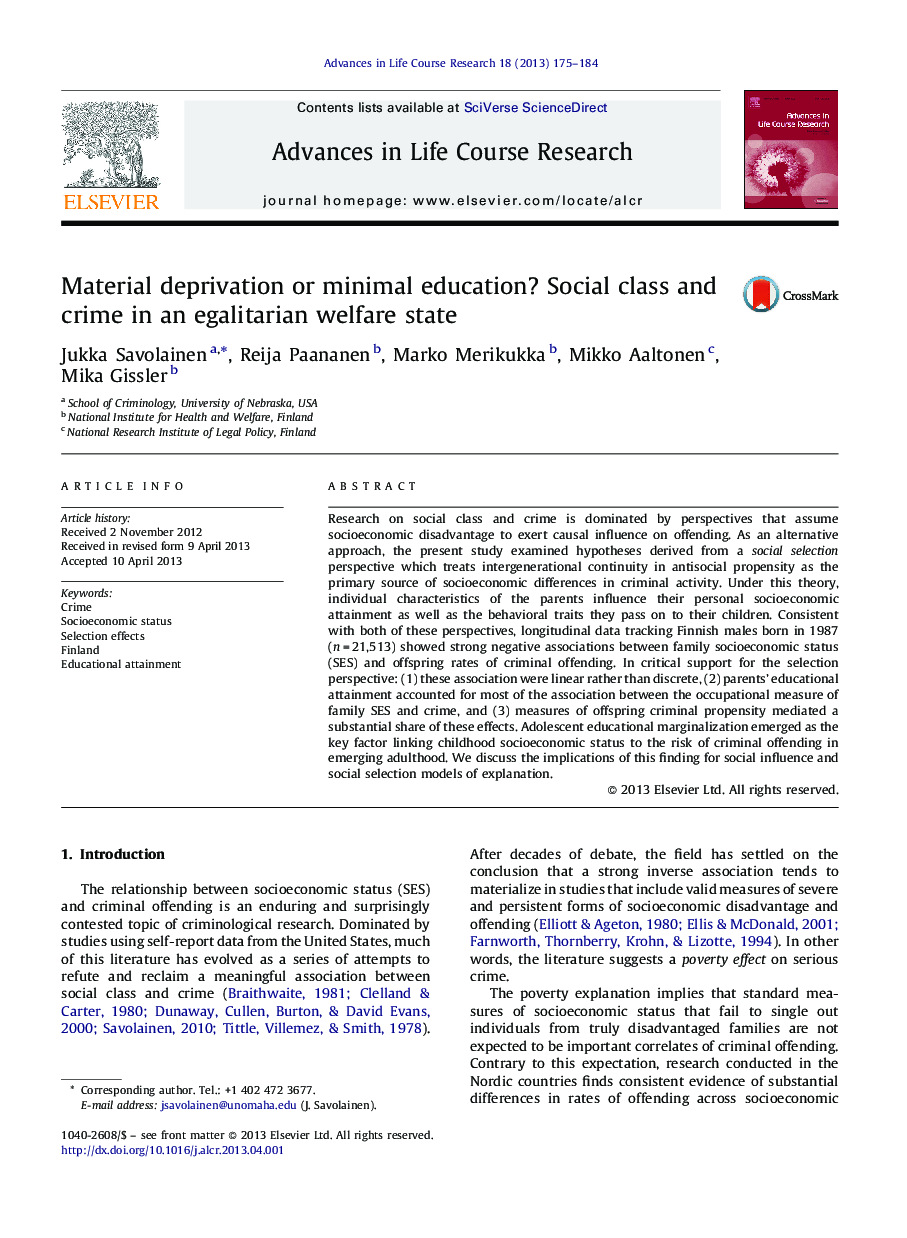| Article ID | Journal | Published Year | Pages | File Type |
|---|---|---|---|---|
| 10296809 | Advances in Life Course Research | 2013 | 10 Pages |
Abstract
Research on social class and crime is dominated by perspectives that assume socioeconomic disadvantage to exert causal influence on offending. As an alternative approach, the present study examined hypotheses derived from a social selection perspective which treats intergenerational continuity in antisocial propensity as the primary source of socioeconomic differences in criminal activity. Under this theory, individual characteristics of the parents influence their personal socioeconomic attainment as well as the behavioral traits they pass on to their children. Consistent with both of these perspectives, longitudinal data tracking Finnish males born in 1987 (n = 21,513) showed strong negative associations between family socioeconomic status (SES) and offspring rates of criminal offending. In critical support for the selection perspective: (1) these association were linear rather than discrete, (2) parents' educational attainment accounted for most of the association between the occupational measure of family SES and crime, and (3) measures of offspring criminal propensity mediated a substantial share of these effects. Adolescent educational marginalization emerged as the key factor linking childhood socioeconomic status to the risk of criminal offending in emerging adulthood. We discuss the implications of this finding for social influence and social selection models of explanation.
Related Topics
Physical Sciences and Engineering
Mathematics
Statistics and Probability
Authors
Jukka Savolainen, Reija Paananen, Marko Merikukka, Mikko Aaltonen, Mika Gissler,
